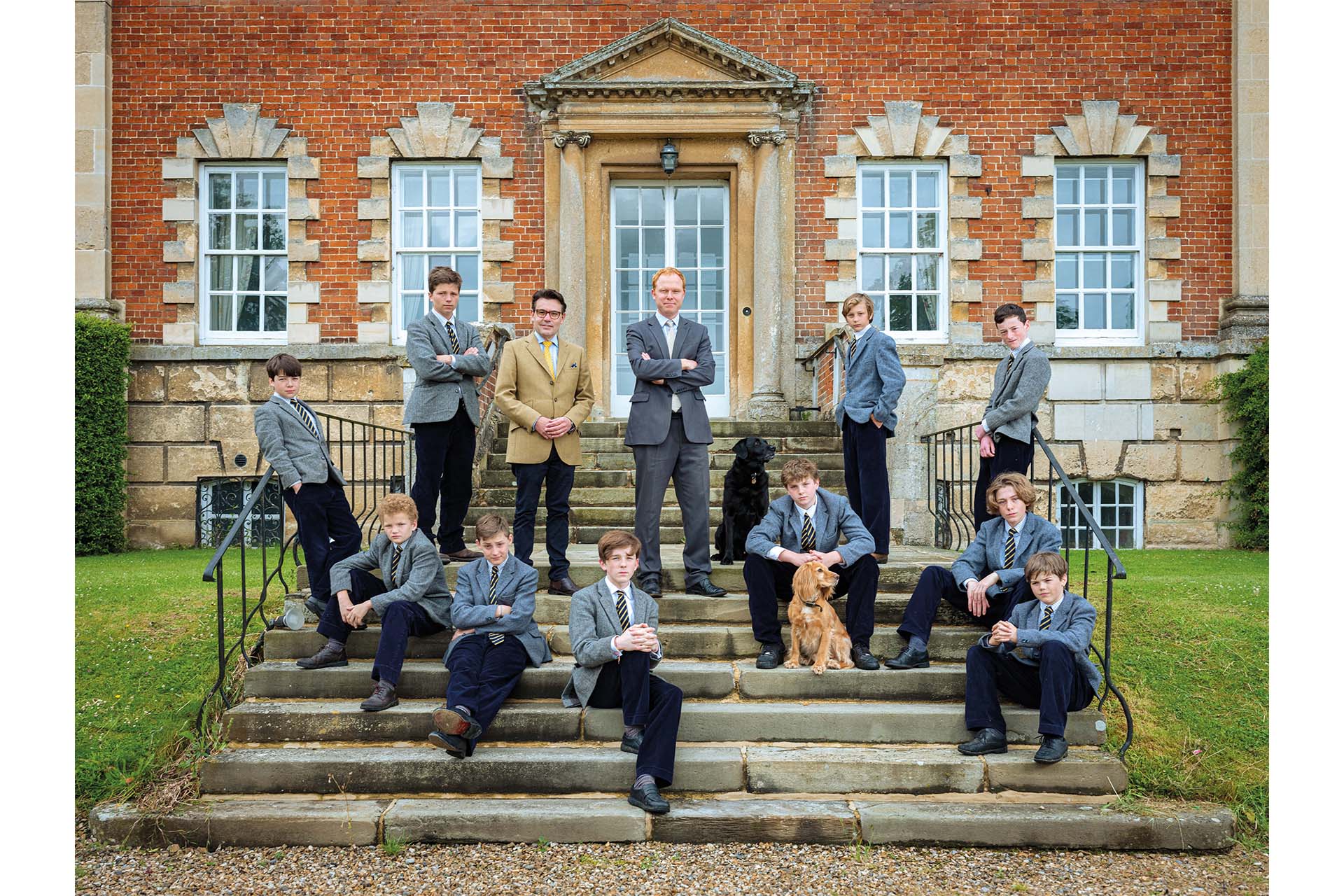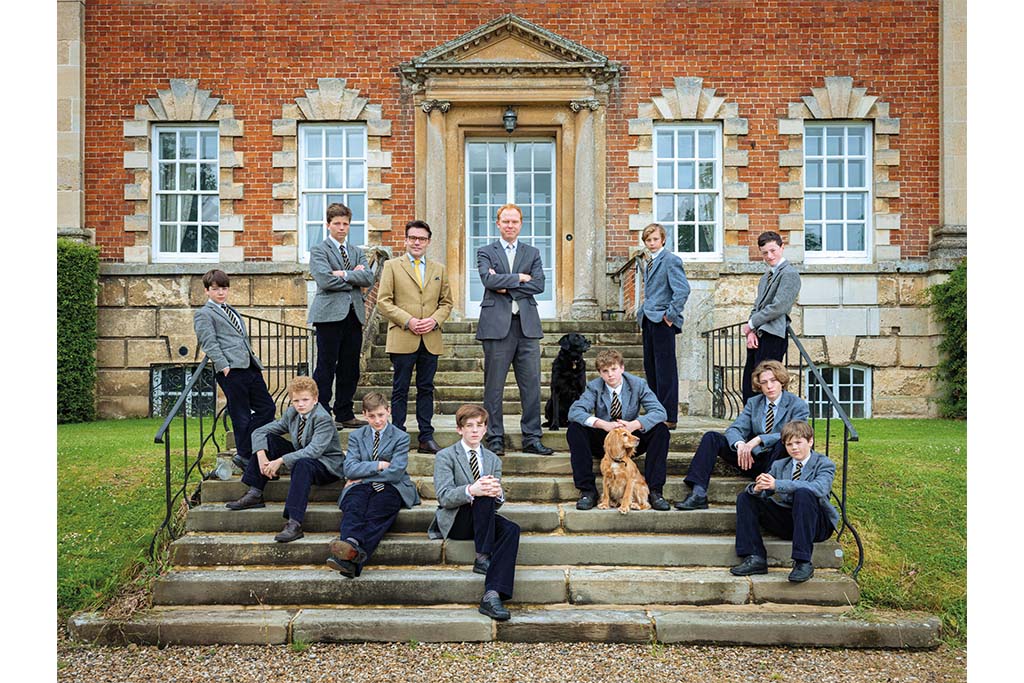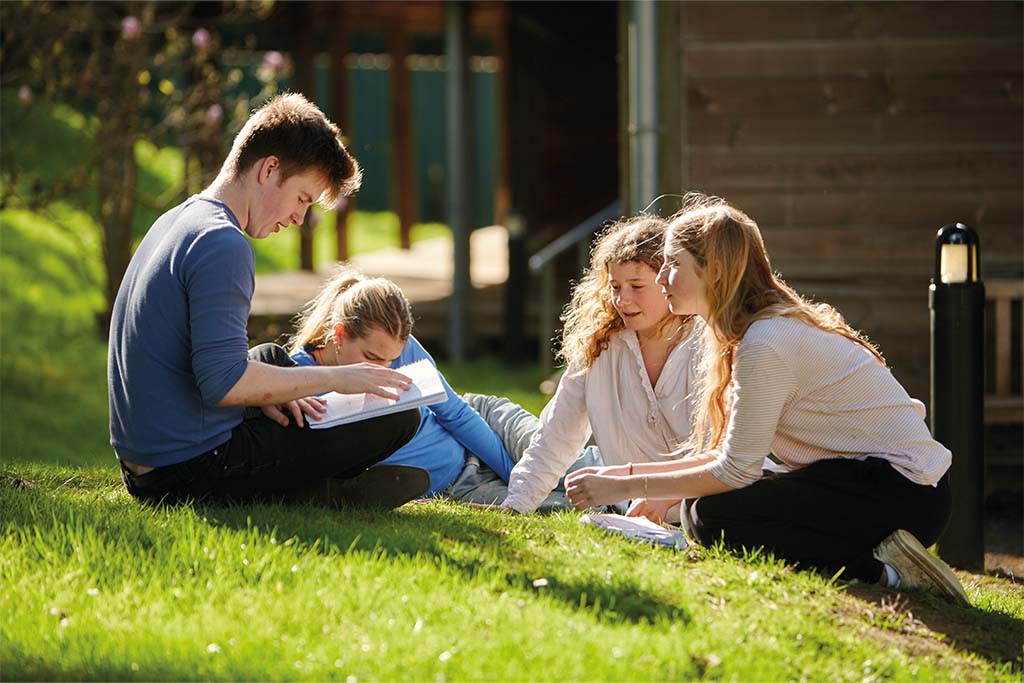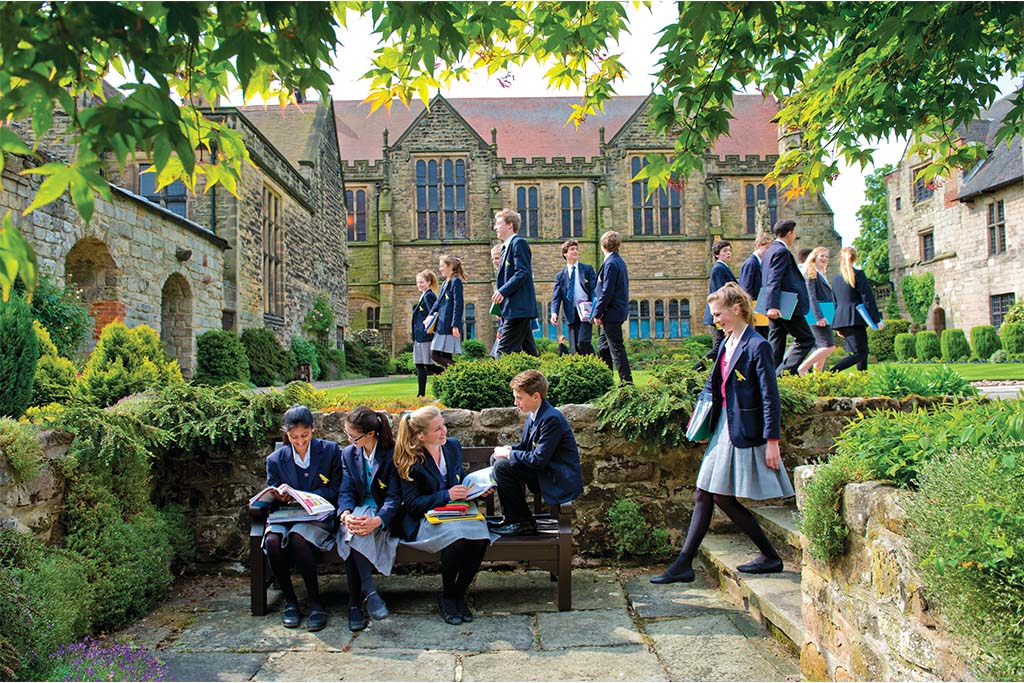Engines of Change
By
4 years ago

The essence of the success of independent schools is their freedom to innovate and challenge the status quo, says Annabel Heseltine.

Exam results this summer highlighted the ability of independent schools to adapt quickly to deliver a high standard of education even in a pandemic, begging the question how important is the ‘independence’ of schools in delivering this standard of excellence or does it just boil down to having more money in their coffers?
Fees, today, range on average from £15,000 for a day school approaching £45,000 a year for a top boarding school, compared to the £5,000 provided annually for a state-educated pupil, and many of them are well-endowed by the ecclesiastical and mercantile benefactors who founded them several centuries back.
‘Sometimes it is hard to distinguish between the fact that they are independent schools and largely independent of governance and the fact that they have more resources because they can charge fees,’ says Barnaby Lenon, Chair of the Independent Schools Council and former headmaster of Harrow adding, ‘I once asked the government if a state school, where I was chair of governors, could take overseas pupils and charge fees, but they said no. They don’t have the flexibility.’
It’s that flexibility that has enabled independent schools to move swiftly to provide the online learning which allowed pupils to shine academically this year. It manifests in many ways in its ability to adapt to what parents want, be it single sex or co-educational learning or bringing in flexi and weekly boarding, and in its curricular and extra-curricular provision.
Unlike state schools, independent schools are not required to publish their exam results in the newspapers’ league tables and many of the best schools don’t, points out Lenon. ‘It is not that they don’t believe in getting good results – they would be mad not to – but they take a broader view of education than many state schools are able to, partly because of their boarding history. Even though many more are now day schools, they still carve out far more time for co-curricular activities like sports, drama, music and art.’
The independent sector’s exceptional provision of the extra-curricular attracts pupils from all over the world, and is demonstrated in its sport – 65 medals won at the Olympics this summer – in art and theatre, music, as well as its pastoral care and topically, its IT provision.
‘The independent sector is pejoratively described as an engine of privilege, but it is also a wonderful engine for change, for innovation and enterprise. We have the freedom to take risks and drive the education agenda forward which doesn’t exist in the state sector.’
James Dahl, headmaster of Wellington
Repton, a co-ed day and boarding school in Derbyshire, has been a Microsoft Showcase for years winning numerous awards for its online learning. ‘Our Education Business award for remote learning referenced the fact that our conception of online blended learning included a very significant consciousness of pastoral wellbeing,’ said Deputy Head James Wilton. When lockdown came, ‘we already used technology to deliver the curriculum so were freed from the stress of converting to online digital teaching and could prioritise pupil wellbeing.’
Like many other independent schools, Repton took their online teaching beyond the academic to include online chapel services, sports coaching, collaborative musical ensembles and pastoral check-ins. Using AI and a technological package called Affective Social Tracking they have developed a Wellworks programme to detect hidden stresses in pupils.
Pastoral care has in some ways been the thorn and the rose of independent school education. No-one can be unaware of the occasional, much-dreaded press stories of abusive teachers or bullying. Earlier this year, the Everyone’s Invited revelations forced more than one high profile senior school to move with alacrity to address accusations of sexual abuse and misogyny among their pupils.
Even Lenon acknowledges the ‘very beneficial effect’ on independent schools of the DfE’s Independent School Inspectorate (ISI) in greatly increasing the focus on safe-guarding and child protection. ‘You can say that that’s undermining independence,’ he says, ‘but these ISI Inspections don’t drive what happens in our schools and are a very good thing as long as their requirements don’t become too closely defined by any one particular government.’
Across the board, pastoral care is provided to an exceptionally high standard, as new styles of governance over the past 20 years drove out crusty, out-dated attitudes.
Sixteen years ago, ‘happy clappy’ became ‘happy’ classes at Wellington College, Berkshire, a co-educational senior boarding and day school then under the custodianship of its transformative headmaster Sir Anthony Seldon. Unhampered by the restrictions of the state system which requires all its teachers to have teaching qualifications, he was able to employ exceptional people on merit alone.

As PSHE co-ordinator, Ian Morris, author of Learning to Ride Elephants, worked with Nick Baylis, then a researcher at The Wellbeing Institute at Cambridge, to write Wellington’s first Happiness and Wellbeing programme. The vision of 400 pupils head’s bowed in Wellington’s Chapel practising meditation and mindfulness will resonate with many people today but at the time it was visionary and ground-breaking.
‘That proactive teaching and awareness of positive psychology and thinking in how to equip pupils with the skills to cope rather than mopping things up when things go wrong is one of the more important contributions made to education in the last 15 years,’ says James Dahl, the current head of Wellington, referring to the crisis of anxiety, depression and disordered eating among school-aged children.
Dahl acknowledges Seldon’s legacy not just in his pastoral care but in his passion to change the way schools teach, throwing out the old 19th century industrial sausage-making factory approach, adopting instead the Harkness style, a flipped classroom approach where pupils prep for the lesson and come to the class as an active participant sitting shoulder-to-shoulder with their teacher who facilitates and guides critical thought and debate around an oval table.
He is the first to acknowledge that this informal collaborative style works best for the smaller classes of independent schools but believes there is more change in the offing. ‘The independent sector is pejoratively described as an engine of privilege, but it is also a wonderful engine for change, for innovation and enterprise. We have the freedom to take risks and drive the education agenda forward which doesn’t exist in the state sector.’
He cites, for example, the ability of the independent sector to question the status quo and devise exciting alternatives to GCSEs like the Sevenoaks diploma, Bedales Assessed Courses (BACS) and in Oxford, St Edwards School’s Pathways and Perspectives. ‘Exam-taking is a significant issue and you could sense the momentum of change at the HMC conference last year,’ says Dahl. There was ‘a real sense that the worm had turned’ with more traditional schools like Eton and St Paul’s questioning the purpose of GCSEs. ‘It was no longer a few wacky schools at the edge but a broad coalition who want to imagine an education of the future.’
Alastair Chirnside, the new Warden of St Edward’s, affectionately known as Teddies, a 50:50 A-level/IB school with a broad intake, agrees, pointing out that even Lord Baker, the Education Secretary who introduced GCSEs is now saying that they are redundant with too much content and too few skills for the future.
His predecessor, Stephen Jones, introduced the new Pathways and Perspectives accredited by Buckingham University which has enabled Teddies to scrap all but the core GCSEs and offer pupils two or three options on subjects fit for purpose in a 21st century workplace. Part of the process involved consulting universities who ‘welcomed the emphasis on a broader range of skills which they said would better prepare pupils for university study,’ said Chirnside.

It is this work with universities and an emphasis on research which has defined the success stories of many schools. Whether its Gordonstoun in the Scottish Highlands working with Edinburgh to design a curriculum promoting ‘confidence, teamwork and resilience’ or Bedales in Hampshire, which was founded in 1893 as an ‘humane alternative’ to late-Victorian authoritarianism ‘to encourage questioning, divergent thinking and the freedom to learn from mistakes.’
Bedales worked with Harvard when introducing their BACs on subjects like Global Awareness and Design – Product and Fashion. Digital Game Design was introduced in 2019 and a year later they put back the start of the school day to 9:45am following research into the circadian sleeping patterns of teenagers.
Bedales’ current headmaster Magnus Bashaarat was previously head of Milton Abbey, an individual school known for taking a disproportionate number of pupils with learning difficulties and winning Pearson’s BTEC School of the Year award in 2019. Bashaarat brought in household names, like Boden, Anya Hindmarch and Charlie Bigham as entrepreneurs-in-residence to his BTEC course on Enterprise and Entrepreneurship.
The vocational learning associated with BTECs has always been a sensitive issue for parents who, to quote Bashaarat, ‘consider these a path for hairdressers and plumbers’, and have failed yet to understand that for many universities, a BTEC really is the equivalent of an A-level and that with employers in design, engineering and other vocational careers crying out for applicants, it makes sense to look again.
‘BTECs finally allowed pupils to acquire valued skills and knowledge and have this learning properly recognised,’ says John Floyd, headmaster of Bruern Abbey, a stone’s throw from Bicester village, and the only prep school in the country with the proud remit of taking boys with dyslexia and preparing them for common entrance into mainstream, senior schools including Winchester, Charterhouse, Eton and Stowe, as well as Milton Abbey.
‘In the state sector we would have had to either have been a special school or mainstream but the wonderful thing about independence is that we can take the best of both and mix them together to make Bruern’
John Floyd, head of Bruern Abbey Prep and Senior
With tiny classes, little homework and a sensitive school week ending at 5pm on a Friday with buses depositing tired boys back into London for the weekend, Bruern is a glorious multi-trick pony. ‘In the state sector, we would have had to either have been a special school or mainstream but the wonderful thing about independence is that we can take the best of both and mix them together to make Bruern. We can massively overload on English and maths, and drop some of the peripheral subjects.’
In the same vein, next September they are launching a senior school for Years 9 to 11, for boys with dyslexia and dyspraxia, in what is another black mark against the middle school system. ‘GCSEs are more content heavy and getting harder.’ Many schools, says Floyd, won’t take his boys because ‘they don’t want the responsibility of those exams.’ Bruen Abbey Senior in Chiltern, Buckinghamshire will ‘shamelessly focus on our specialism, getting them through those difficult years as well as possible so that they can access the best of the sixth form.’
Floyd illustrates the intelligent practicality which I have seen time and again in the independent sector. Men and women committed to educating the next generation without compromise but with the ability to bend and move with the times.
Demonstrating the alacrity with which the independent sector can move to supply a demand, London has just seen the opening of its first hybrid school. Portland Place School is providing online learning for pupils aged ten to 16, four days a week and on-site practical studies once a week for art, design technology, science and sport. With fees a third of most London day schools, its expanded catchment makes it available to families with lower incomes.
Cynics will say that it’s because schools have to defend their charitable status, that 90 per cent of independent schools have reached out to the state sector, offering up many more bursaries, working hard to be inclusive and to share their educational knowledge. The examples are broad and diverse. Eton has just announced it is setting up day schools in disadvantaged areas all over the north of England. Repton has an established partnership with the 36 school-strong Greenwood Academies Trust in the Midlands.

St Edward’s Beyond Teddies uses its professional-standard theatre, The North Wall to offer work experience to state school pupils. James Allen’s Girls’ School (JAGS) in London has a strong commitment to offering bursaries and ‘in certain circumstances, will offer state school students from partner state schools the opportunity to study Latin, computer science and history of art A-levels,’ says headmistress Alex Hutchinson who last year held JAGS’ third Understanding Mental health within Schools conference in collaboration with the NHS for colleagues from state and independent schools and the wider community.
Of course, their charitable status is a significant part of the story but as fees escalated, schools recognised that, ‘to be accessible only to the wealthiest parents was not good for pupils in the schools as well as being not a good thing politically,’ says Lenon, who oversaw the opening of a state school by six independent schools in Newham in 2012 which transformed the borough and this year sent thirty pupils to Oxbridge.
To finance bursaries, independent schools have opened up schools all over the world. Repton now has seven schools in the UEA, Egypt, Malaysia, and China. Harrow, Dulwich College, Marlborough and many more have set up schools all over the world which fund bursaries at home up to 100 per cent including uniform and foreign trips, as well as scholarships.
Lenon once told me that his dream was to see every school place in England funded by income from foreign investment, and now says there are more children being educated by the independent sector overseas than in this country which has additional benefits of shared communications, pupil exchanges, wider net-working and positive international relationships.
Critics of independent schools accuse them of being elitist and out of touch, and certainly when Corbyn was leader of the Labour party there were more than a few heads worrying about their loss of charitable status as well as crippling business rates and teacher pensions. But Lenon sees the new threat coming from the centralisation of government education policy.
‘Three-quarters of secondary schools are now academies run by multi-academy trusts accountable to Central Government so it has much more political capital invested in ensuring that state schools do as well as, if not better, than independent schools than it did at any time in the past 500 years. So independent schools have got to fight for their independence and not feel that they have to always do what the government says or wants.’
It’s a timely reminder which is unlikely to fall on deaf ears among the talented and determined heads famed for championing educational innovation and leading the way in the educational sector for the ultimate benefit of all, not just at home but in global perception.
As Hutchinson says, ‘the essence of independence is the ease with which we can keep focused on a complete education, in and out of the classroom, in curricular, co-curricular and super-curricular enrichment. It allows us to be nimble and responsive, and means we can constantly tweak, review and redesign the opportunities for young people. Real life doesn’t stand still, and nor should schools.’
READ MORE FROM AUTUMN/WINTER 2021
Club to Career | If the Shoe Fits



